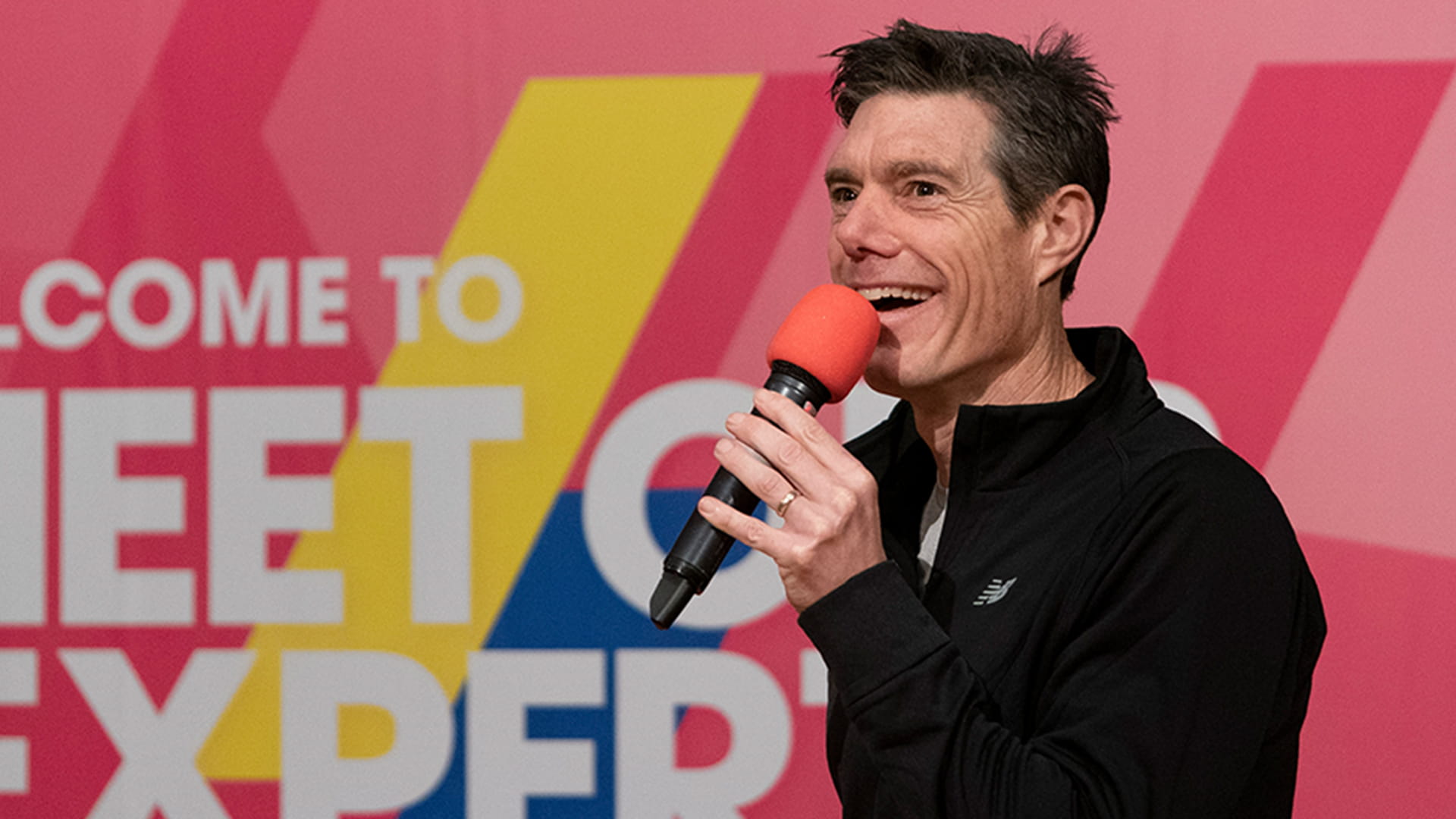Whether you feel nervous, excited, confident or clueless, we are here to help you complete your marathon.
Martin Yelling, the Official TCS London Marathon coach, has produced training plans that have helped thousands of participants, from beginner to advanced, prepare for Event Day.
“Come Event Day, all you have to do is turn up. OK, and run 26.2 miles… but 98 per cent of people who start will finish, but there are a few things you have to do to be part of that 98 per cent,” Martin says.
Here are his top eight techniques to complement your training and ensure you reach the Start Line feeling confident.
1) Always remember your why
Every TCS London Marathon runner has a reason for signing up to conquer those 26.2 miles.
Martin says you need to keep your why close to you. “You will have felt all the emotions, particularly if London is your first marathon. Who feels nervous? Excited? Confident? Clueless? It will frustrate you too. This marathon means a lot, and keep that little reason why you want to do it close to you because it will get you through.” Are you fundraising for charity? Use this as your motivation when the going gets tough!
2) Have a rough finish time in mind
“If you’re thinking, ‘I’m going to be last’, well, someone is, but the probability is it’s not you,” Martin says. “The majority of runners, that’s 75% of the field, finish in over four hours. Some of you will walk some of it, and that’s OK! The right training makes your Event Day easier and makes sure you can get round the course and enjoy it.”
There will be pacers on the course who are easy to spot as they have flags on their back displaying their finish time. These experienced runners will finish within a predesignated time and Martin says keeping the relevant pacer in your sights is a good way to manage your marathon. In 2023, the pacers covered finish times from three hours up to seven-and-a-half hours.
3) Learn what it’s like to run easy
You will have spotted easy runs in your training plan and might have questioned whether there is such a thing, but Martin says this is a key part of your marathon prep.
“You should learn what it is to run easy as most of your training should be just that, easy. Your body takes time to adapt to the miles and pressure you put it under. Be patient, gradual and appropriate. Your training is personal to you. If you finish an event, and it feels easy, that’s a great place to be.”
4) Be consistent
Much like Event Day, half of your training is showing up and getting the miles done.
“Running once or twice a week isn’t regular enough,” says Martin. “Three times a week is the minimum. And if you miss one [run] for one week, that’s OK. You should complete one easy base miles run, one paced workout and one long run each week. And if you have the time, a bonus run.
“Build a routine so you can protect that time. Consistency is the most important part of your training. What happens with training is over time, what feels horrible gets easier. If that hasn’t happened yet, be patient, it will. Then you turn the dial a bit, and you are back to it feeling hard again. You wait three weeks, your body adapts, and you turn it up again.”
5) Don’t skip your long runs
Long runs are a great opportunity to practise your nutrition and hydration strategy, and are important to help build resilience. But Martin says you should not run the full 26.2 miles in training.
“Your longest run should be 18 to 22 miles around three weeks before Event Day. Your confidence grows with increased exposure to the demands of a long run. You know in your body and mind that you have the tools to cover the miles.
“You are gradually building confidence and tolerance for suffering. Your marathon is a day of wonderful suffering,” jokes Martin. “You’ll love it, but it hurts, however, your training will prepare you for that.”
6) When the going gets tough, you’ve got to keep going
You might be testing which gels you are going to use on Event Day, but don’t forget to also train mental techniques that will help you reach the Finish Line.
“The next time you feel like, ‘This is horrible, and I want to stop’. Don’t feel cross or upset with yourself. You will learn something,” Martin explains.
“Focus on the moment you are in. Spend 30 seconds to settle, take a few breaths, slow down, and calm yourself. Spend the next 30 seconds getting ready. Do self-talk like, ‘Come on, you have got this’, or ‘This is not getting the better of me’. Once you’ve collected yourself, get going again.
“It’s likely you will have to do that multiple times in a marathon. All those things you practise on the long run will help your confidence and competence to get going.”
7) Be flexible!
Training is hard enough without being hard on yourself.
“Your life has got to fit your training,” says Martin. “You have to go with the flow a little bit. If you approach it like the rest of the world has to stop, you will only make yourself disappointed.”
8) Stay calm and stick to your plan on Event Day
Remember to pace yourself and break up the distance in your mind. You’ve got this!“Don’t start fast. Be patient and in control for the first half,” Martin says. “Break up the route. Tower Bridge is a great landmark, as you are officially halfway, and get to Tower Bridge as easily as you can. When it gets tricky, remember those long runs. You have the tools to cover those 26.2 miles.”
